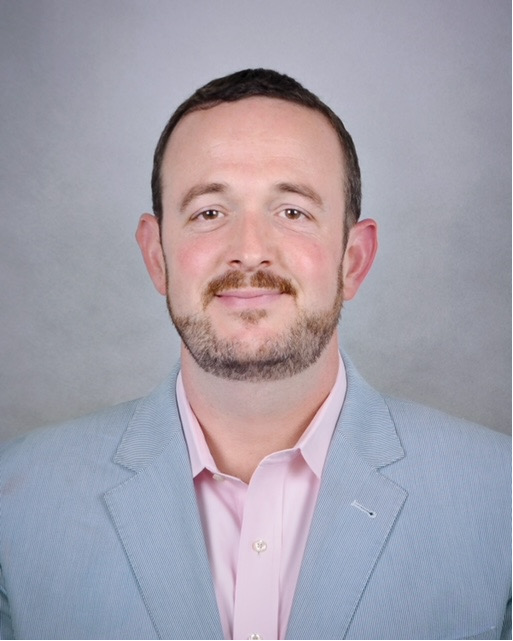What SPACs Must Prepare for in the Next 12–18 Months
In this episode of The SPAC Podcast, Machua “Motsch” Millett, Chief Innovation Officer at Lockton Companies, shares his outlook on D&O risk for SPACs and de-SPACs heading into 2025 and beyond.
Drawing from decades of experience advising public and pre-public companies, Machua warns that we’ve seen this market cycle before: an uptick in activity, rising headlines, and inexperienced teams rushing in. This time, however, there’s a shift experienced sponsors are leading the way, and the litigation environment looks far less volatile than in past cycles.
He explains what boards and sponsors should be doing now to stay ahead of potential issues:
- Understand where risk appears in the SPAC lifecycle
- Design insurance programs that protect both the balance sheet and personal assets
- Partner with advisors who have been through it before
Connect with the Guest:
Machua Millett – Chief Innovation Officer, Lockton Companies
LinkedIn: https://www.linkedin.com/in/machuamillett/
View all of their episodes here:
https://www.thespacpodcast.com/guests/machua-millett/
Connect with the Hosts & The SPAC Podcast:
Michael Blankenship LinkedIn:
https://www.linkedin.com/in/mikeblankenship/
Joshua Wilson LinkedIn:
https://www.linkedin.com/in/joshuabrucewilson/
YouTube Channel:
https://www.youtube.com/@Thespacpodcast
Contact The SPAC Podcast:
https://www.thespacpodcast.com/contact/
#SPACs #CapitalMarkets #SPACPodcast #DandOInsurance #DeSPAC #RiskManagement #SPACSponsors
The views, opinions, and statements expressed by the guest are solely their own and do not necessarily reflect the views of The SPAC Podcast, its hosts, or affiliated organizations. This content is for informational purposes only and should not be construed as investment, legal, tax, or accounting advice.
Disclaimers:
The views, opinions, and statements expressed by the guest are solely their own and do not necessarily reflect the views of The SPAC Podcast, its hosts, or affiliated organizations. This content is for informational purposes only and should not be construed as investment, legal, tax, or accounting advice.
Michael J. Blankenship is a licensed attorney and is a partner at Winston & Strawn LLP. Joshua Wilson is a licensed Florida real estate broker and holds FINRA Series 79 and Series 63 licensure. The content of this podcast is intended for informational and educational purposes only and should not be interpreted as legal, financial, or compliance advice. The views and opinions expressed by the hosts and guests are their own and do not necessarily reflect the official policies or positions of any regulatory agency, law firm, employer, or organization.
Listeners are encouraged to consult their own legal counsel, compliance professionals, or financial advisors to ensure adherence to applicable laws and regulations, including those enforced by the SEC, FINRA, and other regulatory bodies. This podcast does not constitute a solicitation, offer, or recommendation of any financial products, securities transactions, or legal services.
Let’s Connect on LinkedIn:
👉 Michael J. Blankenship - https://www.linkedin.com/in/mikeblankenship/
👉 ...
Michael Blankenship:
Let’s say you’ve got your crystal ball out, what D&O risks should SPACs be preparing for over the next 12 to 18 months?
Machua Millett:
Anytime I see a market environment like we’ve had over the last six months, it sets off some alarms because I’ve seen this movie before. Back in 2018–2019, there was a wave of interest in SPACs. You had a mix of experienced and inexperienced teams, and that created risks people didn’t fully understand.
It brought increased attention from lawyers, regulators, and underwriters, and ultimately led to the insurance pricing spike and tighter scrutiny we saw post-2020.
So when I hear “SPACs are back” headlines on LinkedIn, I hesitate. The truth is, SPACs never left. They’ve always been a viable way to take a company public, depending on the situation. Not every company should go public via SPAC, just like not every company should IPO.
What we’re seeing now is a return to experienced teams, and I believe that means lower litigation risk going forward.
From a D&O insurance standpoint, that means SPACs should:
- Know where risk occurs in the lifecycle
- Build insurance programs that protect the company’s balance sheet and the personal assets of officers and directors
- Be proactive, not reactive, with risk strategy

CINO and Alternative Investment Practice Leader
Mach specializes in policy drafting, program placement and claims advocacy regarding management and professional liability insurance issues for private equity, venture capital, and hedge funds and private and public companies. He is responsible for overseeing technical insurance policy drafting for our General Partner Liability and portfolio company D&O books, as well as guiding private companies through the insurance aspects of the traditional Initial Public Offering (IPO), SPAC IPO, and de-SPAC processes. He is also a senior claims and coverage resource for our alternative investment fund and private and public company clients when they have a claims dispute.
Mach’s background is as a general commercial litigator, securities class action defense attorney and insurance coverage lawyer. Before becoming an insurance broker, he spent ten years defending alternative investment firms and private and public companies against regulatory investigations, derivative and class action securities suits, general commercial lawsuits and insurance coverage actions at Bingham McCutchen, Skadden Arps and Edwards Wildman.
Mach was born in Nicaragua, and grew up in Nicaragua and Costa Rica before coming to the United States. He graduated from New Lebanon Junior/Senior High School as a National Merit Scholar, summa cum laude from Tufts University, and Harvard Law School. He lives outside of Boston, MA with his wife and two boys.












